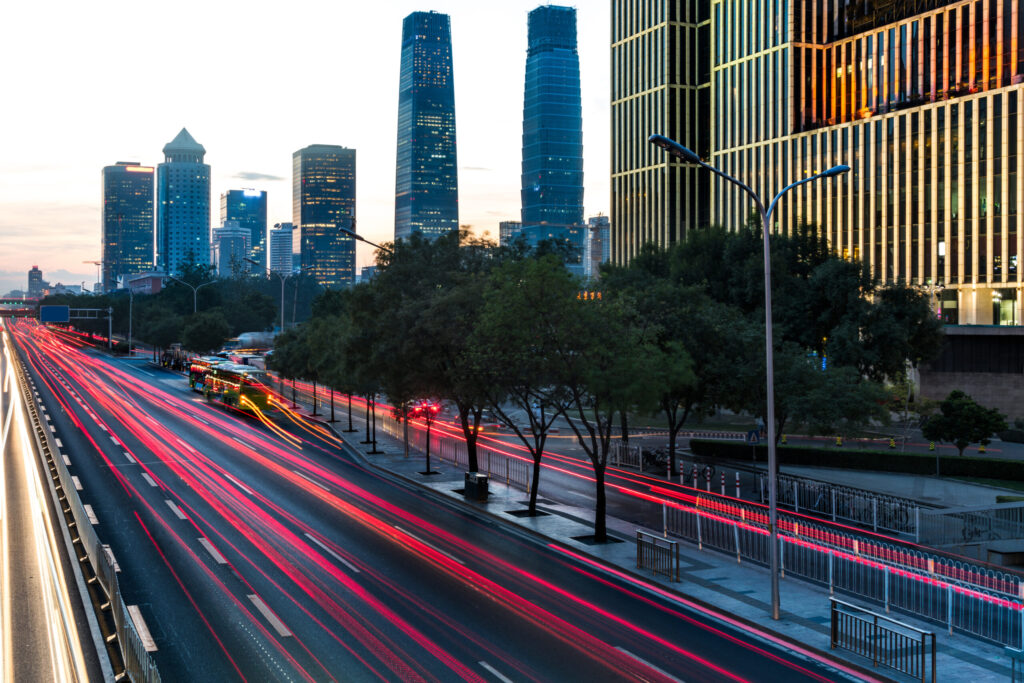Your cart is empty
You may check out all the available products and buy some in the shop
Return to shop
Urban traffic is becoming increasingly complex for traditional fixed-timing signals. Cities across Europe, the United States, and the Middle East are rapidly investing in smart traffic lights and AI-driven traffic management systems to reduce congestion, cut emissions, and improve safety. The global smart mobility market is projected to grow from about $46 billion in 2024 to over $400 billion by 2034, with intelligent transportation systems (ITS) technologies playing a central role in this transformation.
The demand for advanced traffic management is strong worldwide. The global traffic management systems market alone is valued at nearly $30 billion in 2024 and is expected to grow at double-digit rates over the coming years. In Europe, the ITS sector is forecast to almost double by 2033, driven by smart-city funding, stricter environmental goals, and a push for safer, cleaner, and more efficient mobility technologies. Governments are providing significant funding to modernise roads and intersections, making this an excellent opportunity for businesses in the mobility and ITS industries.
AI-powered traffic systems use real-time data from sensors, cameras, and connected vehicles to adjust signal timings instantly. Unlike traditional traffic lights, smart signals can adapt to changing traffic conditions minute by minute. Key benefits include:
Adaptive Signal Control: Real-time green light adjustments based on traffic flow.
Congestion Prediction: AI forecasts jams and reroutes traffic before gridlock forms.
Emergency Response: Smart systems prioritise clear paths for ambulances and first responders.
Connected Vehicles (V2X): Traffic lights communicate directly with buses, trams, and autonomous vehicles for smoother flow.
Recent studies show that AI traffic management can cut commute times by 15–20% and reduce emissions by around 10%. For example, Pittsburgh’s smart signal pilot reduced travel times by up to 25% and cut idling by 40%. Many cities worldwide are now testing or deploying similar solutions.
New York City: one of the world’s busiest urban areas, is investing heavily in smart traffic systems. With tens of thousands of signals citywide, pilot projects are using AI and sensors to optimise intersections and reduce the estimated 102 hours per year that drivers lose in traffic.
In London, all 6,000+ signals are now connected to a real-time adaptive platform to improve traffic flow for cars, buses, cyclists, and pedestrians. Cities like Barcelona, Verona, and major hubs in the Middle East are also rolling out AI-controlled intersections, with goals to cut congestion by at least 20% in the coming years.
In the Middle East, smart mobility is at the heart of mega-city plans. Dubai aims for 25% of all trips to be in autonomous vehicles by 2030. Saudi Arabia’s NEOM project is being designed as an entirely car-free city with fully autonomous electric shuttles and underground transit systems. These ambitious investments demonstrate the region’s commitment to becoming a leader in cutting-edge ITS and sustainable urban mobility.
For companies working in the mobility and ITS industries, this rapid growth represents a major business opportunity. Public authorities, infrastructure developers, and private operators are looking for reliable partners who can deliver smart sensors, AI software, V2X solutions, and integrated traffic management platforms. Modern smart traffic lights and intelligent traffic systems are no longer an option but a necessity for cities looking to reduce emissions, improve safety, and future-proof their infrastructure.
Want to stay ahead? Businesses that adapt their products and services to support next-generation mobility technologies from adaptive signals to connected vehicle platforms, will be best positioned to lead the way in the fast-growing ITS market across Europe, the US, and the Middle East.
Get 20% off for your first order
Use above code to get 20% 0FF for your first order when checkout
You may check out all the available products and buy some in the shop
Return to shop